Schedule and Speakers
Find out about the Winter School schedule and the speakers' profiles
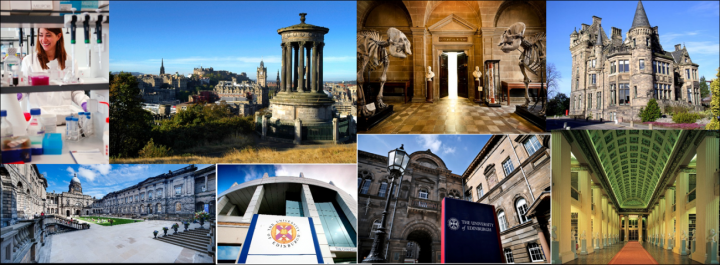
| Day | Main Activities | Location |
|---|---|---|
| Sun, 19 Feb |
Arrival in Edinburgh
|
|
| Mon, 20 Feb |
The need for Rapid Diagnostics to combat AMR
|
|
| Tue, 21 Feb |
AMR Diagnostics Traning
|
|
| Wed, 22 Feb |
Perspectives of AMR Diagnostics
|
|
| Thu, 23 Feb |
AMR DxC Pilot Gathering
|
|
| Fri, 24 Feb |
Departure
|
|
|
Dr Till Bachmann, University of Edinburgh, Edinburgh, UK Reader in Personalised Medicine in Infectious Diseases Dr Till Bachmann is Reader in Personalised Medicine in Infectious Diseases in the Division of Infection and Pathway Medicine, University of Edinburgh. Till has a PhD on biosensors from research at University of Stuttgart and The University of Tokyo and a German Habilitation in Analytical Biotechnology. His scientific interests focus on molecular diagnostics and point of care detection of infectious diseases of key human pathogens such as S.aureus and E.coli and their antimicrobial resistance including ESBL, CRE and MRSA. This includes research on novel detection modalities and discovery of biomarkers of bacterial response to antimicrobial therapy, working towards prognostic tests for Precision Medicine of infectious diseases. Till has published extensively, is a named inventor on various patent applications, and he has led a number of large interdisciplinary diagnostic projects. He is engaged in a number of undergraduate and graduate teaching programmes and is Programme Director of the new online MSc course on Clinical Microbiology and Infectious Diseases. Till is a frequently invited speaker, has a track record in hosting international conferences and has a wide international collaboration network including strong links to India and Japan. He is the founder of AMR DxC, the international Antimicrobial Resistance Diagnostics Challenge competition to be launched with a UK-India phase in 2016. Till fulfils a variety of industrial and institutional advisory roles worldwide including as a member of the Scientific Advisory Board of the Biomedical Diagnostics Institute in Dublin, the Strategic Advice Council on Sustainable Health for VITO, Belgium, and as an Advisor for the Longitude Prize in Antibiotics and is member of various advisory panels for major funding bodies including Innovate UK and the EU Innovative Medicine Initiative (IMI). |
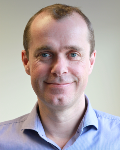 |
|
Dr Kate Templeton, University of Edinburgh, Edinburgh, UK Consultant Clinical Scientist and Honorary Senior Lecturer in Medical Microbiology Dr Kate Templeton is a Consultant Clinical Scientist at the Department of Laboratory Medicine of the Royal Infirmary of Edinburgh and Honorary Senior Lecturer in Medical Microbiology at the University of Edinburgh. Kate did her undergraduate study at Edinburgh University Dentistry. She worked towards FRCPath examination and obtained her PhD from Leiden University Medical Centre in 2000. She returned to Edinburgh in 2005 and now delivers the clinical virology service in Edinburgh alongside three medical consultantsand trained as a clinical scientist at Barts and the London School of Medicine and. Her interests and clinical collaborations are in paediatric medicine, obstetrics, critical care, blood borne viruses and sexual health. Her main focus is on clinically useful molecular diagnostics and molecular epidemiology. |
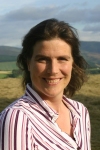 |
|
Dr Louise Horsfall, University of Edinburgh, Edinburgh, UK Lecturer in Biotechnology Dr Louise Horsfall is a Lecturer in Biotechnology at the University of Edinburgh and the 2015 recipient of the Chancellor’s Rising Star Award for her teaching, research and industrial engagement in the field of synthetic biology. Louise is co-lead of the University’s iGEM team and the elected co-chair of the Bioengineering and Bioprocessing section of the European Federation of Biotechnology. She began her career as a chemist at the University of Oxford before moving to Liège, Belgium, to study biochemistry gaining her PhD in 2007. She moved into the emerging field of synthetic biology in 2010, securing her first academic position in 2012. |
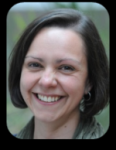 |
|
Dr Adam Stokes, University of Edinburgh, UK Lecturer Dr Stokes is a Lecturer in the Institute for Micro and Nano Systems (IMNS) and the Institute for Bioengineering (IBioE), at The University of Edinburgh; where he is the Programme Director for the MSc in Bioelectronics and Biosensors. He teaches MSc and Honours courses ranging from Computer Organisation and Architecture, to Bioelectronics, Biosensors, and Lab-On-A-Chip. Dr Stokes's research interests include: robotics, physical chemistry, electrical engineering, materials science, nanotechnology, optics, proteomics, and cell biology. He holds degrees in engineering, biomedical science, and chemistry. Before joining the faculty at Edinburgh he was a Fellow in the George M. Whitesides group at Harvard University. He holds a prestigious appointment as a Member of The Royal Society of Edinburgh's Young Academy. Dr Stokes is PI of the Stokes Research Group, an interdisciplinary research laboratory at The University of Edinburgh. |
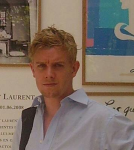 |
|
Professor Mark Bradley, University of Edinburgh, UK Professor of Chemical Biology After gaining a First class Honours B. Sc. Degree in Chemistry with Distinction in Biochemistry, he carried out a D. Phil under the supervision of Professor Sir J. E. Baldwin FRS – both at the University of Oxford. On gaining both a Lindemann Trust and SERC/NATO Postdoctoral Fellowships, he continued with postdoctoral work under Professor C. T. Walsh at Harvard Medical School in Boston, USA (1989-1991) before moving to the University of Southampton as a Royal Society University Research Fellow. In 1997 at the age of 34 he was awarded a Professorship in Combinatorial Chemistry where he founded the Combinatorial Centre of Excellence. He continued to direct this Centre until moving to Edinburgh in 2005 where he took up his current position as Professor of Chemical Biology. Since this time his work has become much more focused on the application of chemistry to solving medical problems (chemical medicine) which has resulted, for example in the extensive collaboration between the groups of Bradley, Dhaliwal and Haslett in the area of “smart-probes” for clinical and pre-clinical imaging. More than 60 PhD students have emerged from the Bradley group and overall the group has published more than 20 patents and 300 articles in the form of papers, reviews and book chapters. Over the past 10 years, Mark has been invited to speak at over 250 lectures, meetings and conferences. As well as academic lectures, Mark also gives public service and educational lectures. In addition, Mark has been the main organiser and on the organising committee of several international conferences. |
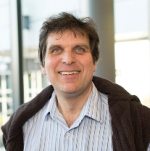 |
|
Dr Bethany Mills, University of Edinburgh, UK Postdoctoral research fellow Beth joined Proteus in January 2015 as a biologist on the project. She leads the biological validation of our devices and optical Smart Probes for infection/inflammation detection in situ, for translation to the clinic. Beth completed her PhD in Molecular Microbiology at the University of Nottingham in 2014. Beth is now developing her own research interests, she has a passion for driving the AMR agenda and is heavily involved in developing global links for Proteus. Beth has been awarded several prestigious prizes, including a Women in Molecular Imaging Network Scholar Award at the World Molecular Imaging Conference in New York, September 2016. |
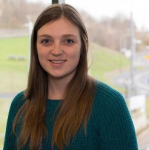 |
|
Dr Alice Street, University of Edinburgh, UK Senior Lecturer Alice Street is a Senior Lecturer in Social Anthropology at the University of Edinburgh. Her research focuses on experiences of medical technologies and global health institutions in the Global South. Her recent book, Biomedicine in an Unstable Place is published with Duke University Press and describes the everyday struggles involved in making biomedical technologies work in a public hospital in Papua New Guinea. Her current research is funded by the European Research Council and investigates the challenges and opportunities relating to the design and use of diagnostic devices in India and Sierra Leone. |
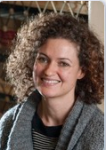 |
|
Dr Baojun Wang, University of Edinburgh, UK Principle investigator, Chancellors research fellow Dr Baojun Wang is a Chancellor’s Fellow in Synthetic Biology at the University of Edinburgh working at the interface between biology and engineering. He is a Principal Investigator in the School of Biological Sciences and the cross disciplinary SynthSys (Synthetic and Systems Biology) Centre. Dr Wang is presently the Programme Director for the MSc in Synthetic Biology and Biotechnology at Edinburgh. He received a PhD in Bioengineering from Imperial College London (2011) and was a Research Associate at Imperial College before joined the University of Edinburgh in 2013 to establish the Synthetic Biological Circuit Engineering Group. His research interests include building novel customised gene circuits for sensing, information processing and computing of multiple cellular and environmental signals with applications in diverse biotechnological areas, for example, biosensing, bioprocessing and biotherapies. |
 |
|
Xinyi Wan, University of Edinburgh, UK PhD student, Institute of Quantitative Biology, Biochemistry and Biotechnology Xinyi is currently a PhD student in Dr Baojun Wang's lab, working on bacterial cell-based biosensors. The aim of her research is to develop a modular signal amplifying approach that can rapidly and significantly increase the sensitivity and dynamic range of bacterial cell-based sensors, and apply the approach to improve the detection of various toxic or pathogenic contaminants in aqueous environments. Before joining Wang group, she received her MSc in Immunology from Imperial College London, studying a signalling pathway that modulates macrophages to atheroprotective functions and received her BSc in Biological Sciences from Beijing Forestry University. |
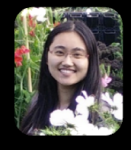 |
|
Dr Robert J H Hammond, Orbital Diagnostics, University of St Andrews, UK Senior Scientist Dr Robert Hammond joined the Gillespie group at the University of St Andrews as a PhD student. His research centres on Mycobacterium species, specifically Mycobacteria tuberculosis. Working with Professor Stephen Gillespie in the school of medicine they aim to glean information about the population of Mycobacterium bacteria in in vivo and ex vivo samples from people suffering with the disease through the use of highly sensitive laser scattering techniques. He is a senior scientist for Orbital Diagnostics (Odx), University of St Andrews, and co-inventor of the Scattered Light Integrated Collector (SLIC), which has recently won a Longitude Prize Discovery Award. |
 |
|
Dr Paul Chapman, Marks & Clerk LLP, Edinburgh, UK Partner Dr Paul Chapman, Partner for Marks & Clerk LLP in Edinburgh, is on the judging panel for the 2014 Longitude Prize, which is designed to help solve the problem of global antibiotic resistance. Paul’s scientific background was in studying antibiotic producing bacteria. Following that Paul entered the IP profession and he now has over 20 years of experience. Paul’s clients range from universities and SMEs to large multinational companies particularly in the biotechnology, chemistry and pharmaceutical fields. He has significant expertise in biologics including, antibody technology, stem cells, RNAi and vaccines, as well as molecular diagnostics and devices of course. |
 |
|
Dr Micah Atkins, MiniFAB Europe, Bristol, UK (Australia) Product Development Manager Micah Atkin is a Research & Development Manager with over 20 years experience working in product development. Skilled in leading and managing teams in the delivery of a range of medical products including implants, in-vitro diagnostics, and scientific analytical systems. He holds a PhD in microfluidics and degrees in both Biomedical Engineering and Chemistry. He is the Director of Device Scope, a medical device development consultancy, and Technical Manager for MiniFAB, a world-leading provider of custom designed and manufactured microfluidic based diagnostic systems and medical devices. |
 |
|
Dr Jonathan O’Halloran, QuantuMDx Group Ltd., Newcastle, UK Chief Scientific Officer & Co-Founder After spending years in South Africa observing the fight against infectious disease and the emerging threat of drug resistance, QuantuMDx’s co-founder and CSO Jonathan had a vision for a better diagnostic tool for both monitoring and preventing disease outbreak and spread. He began developing Q-POC™, a low-cost molecular diagnostic device that could be used to test patients in the field and provide comprehensive analyses, answering clinical questions fast. QuantuMDx has now grown to 75 people, with a research base in Newcastle, UK and offices in USA and Singapore. Jonathan was recognised for his achievements in 2015 when he was awarded European SME CTO of the Year. |
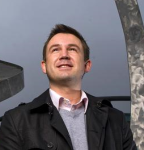 |
|
Oliver Hartwell, Oxford Nanopore Technologies Ltd., Oxford, UK Market Development Specialist Oliver joined Oxford Nanopore in 2011. He initially started working in the Electrophysiology Development Team and in 2013 moved to a Technical Application Specialist role in the Commercial Team to support the growing Nanopore Community. He is now in the Market Development Team. In his role, he has the opportunity to speak with members of the Nanopore Community about the different applications that are being researched with our Nanopore Sensing Technology. The Market Development Team is also focused on building awareness of our technology with prospective Nanopore users. |
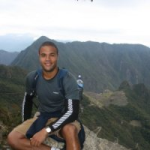 |
|
Sarah Bailey, Nesta: Challenge prize centre Assistant Programme Manager Longitude Prize Sarah is Assistant Programme Manager for the Longitude Prize, a £10 million prize fund to help solve the global problem of antibiotic resistance. Before joining Nesta, Sarah was a researcher at University College London working on a major new birth cohort study, and before that worked at the Royal College of Obstetricians and Gynaecologists writing systematic reviews to inform UK maternal and child health clinical guidelines. Before that she spent far too long studying and trying to figure out what to do with her life. Sarah has a First in Anatomy and Physiology (BSc) from the University of Leeds, an MSc in Immunology of Infectious Diseases from the London School of Hygiene and Tropical Medicine, and a Distinction in Epidemiology (MPhil) from the University of Cambridge. |
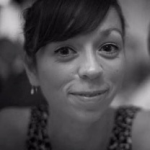 |
|
|

